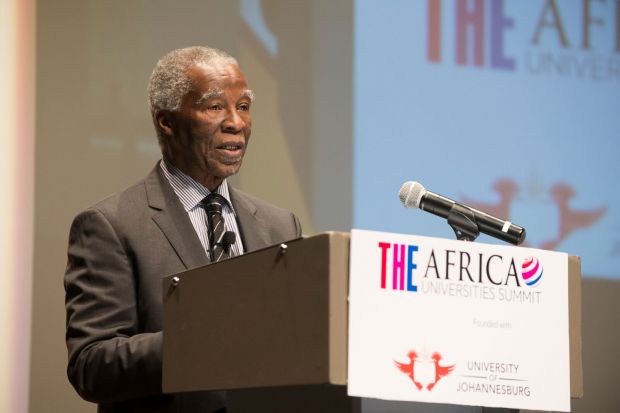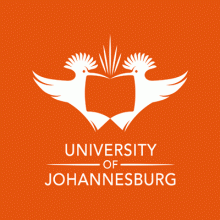Africa’s universities must demonstrate that they are central to the continent’s development agenda if they are to win more public funding, former South African president Thabo Mbeki has said.
Delivering the keynote address at the start of Times Higher Education’s inaugural Africa Universities Summit in Johannesburg, Mr Mbeki said the continent’s higher education institutions had, in many cases, become “impoverished”, “weakened” and “marginalised”, both in terms of their roles in development and their relationships with the state.
This contrasted with the “healthy” partnerships that had existed between universities and political leaders in the aftermath of colonialism when, according to Mr Mbeki, higher education institutions were highly valued for their teaching of graduates, their generation of ideas and their engagement in the uplifting of disadvantaged communities.
He said that this relationship had been “weakened and destroyed in many instances”, in part because of a perception that universities were “serving as centres of political opposition” to the political elite.
Mr Mbeki also highlighted concerns that much of the education provided in African universities was based on Western models and was of “limited relevance” to the continent’s social and economic challenges. There was also a view that a large proportion of the research carried out in institutions focused on “purely academic and scientific objectives” with a view to publication in peer-reviewed journals, rather local priorities such as health, climate change and energy security.
This had serious consequences for the funding of higher education, said Mr Mbeki, the president of South Africa between 1999 and 2008.
“In many African countries, governments came to consider expenditure on universities and therefore higher education as a burdensome but unavoidable cost, rather than an absolutely necessary and beneficial investment,” he said.
Mr Mbeki said that, as a result, it had been premature for universities to call on governments to put higher education at the centre of the development agenda, as they did at the African Higher Education Summit held in Senegal earlier this year.
Such a role for government required “prior preparation” on the part of universities, he argued.
“One of the major tasks our universities must undertake is advocacy to convince the so-called political class in Africa that they are indeed situated at the centre of the African development agenda and therefore need new investment, significantly to improve their capacity to discharge their responsibilities relating to that development agenda,” Mr Mbeki said.
“I think it is only once they are convinced about all of this that it will be possible for our governments to lead the process which would result in the substantially larger public funding that is required and without which many of the radical changes that need to be made will not see the light of day.”
Delegates from 22 countries are taking part in the summit, which is being held at the University of Johannesburg and will examine issues such as higher education funding, research collaboration, and a possible THE ranking for the region.
Register to continue
Why register?
- Registration is free and only takes a moment
- Once registered, you can read 3 articles a month
- Sign up for our newsletter
Subscribe
Or subscribe for unlimited access to:
- Unlimited access to news, views, insights & reviews
- Digital editions
- Digital access to THE’s university and college rankings analysis
Already registered or a current subscriber?






